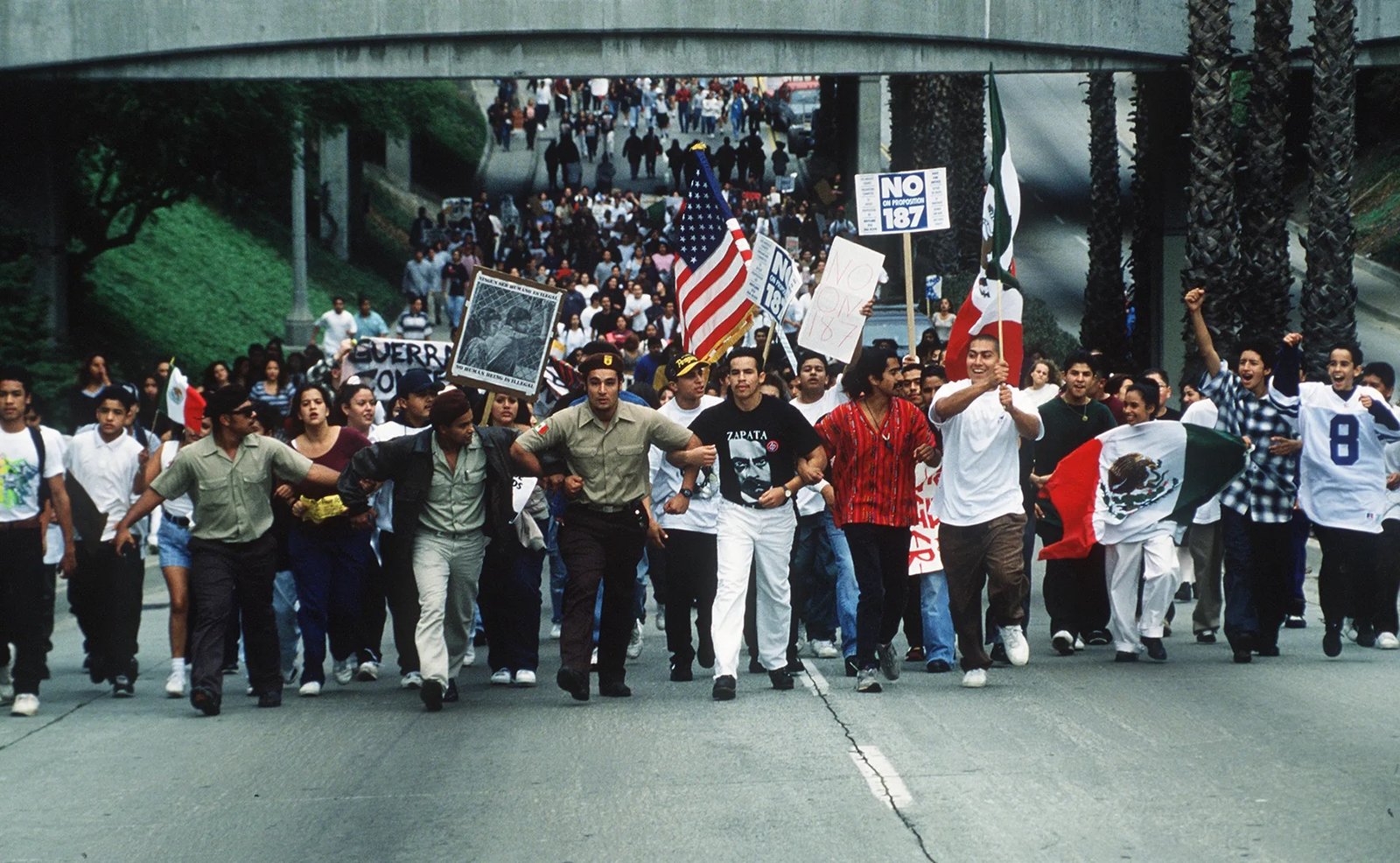That included 91% of Democrats and 73% of political independents, though only 31% of Republicans.
“This is pretty much a settled issue,” said Baldassarre.
Part of that sweeping change can be explained by the state’s shifting demographics. If the U.S. is the land of immigrants, California is doubly so. More than a quarter of the state’s population was born abroad, and almost half of California’s children were born to an immigrant parent. More than half of California’s immigrants are naturalized U.S. citizens.
And California’s immigrant community is diverse: 49% are originally from Latin American countries and 41% from Asia. For the past decade, more immigrants from Asia have entered California than from Latin America.
But California’s changing demographics are only part of the reason immigration politics have seen such a radical shift in such a relatively short period of time, said Adrian Pantoja, a political science and Chicano studies professor at Pitzer College in Claremont.
It’s not a law of nature that Latinos and other demographic groups with sizable immigrant populations should favor the Democratic Party. Plenty of Latinos and Asian Americans, for example, hold traditionally conservative opinions — on specific border and immigration-related policies and a host of other issues.

Had the GOP “reached out effectively to Latinos, to Asian American voters — populations that were inclined and trending toward the Republican Party” the state GOP might still be an electoral force, said Pantoja.
Instead, the state party hitched its political future to a ballot measure aimed at penalizing undocumented immigrants and their children — and hasn’t won a statewide race since 2006.
Still, as in much of the nation, Latino support for Republicans in the last presidential election ticked up in California. In nine of 12 counties where Latinos are the largest demographic group, support for Trump increased from 4 to 6 percentage points between the last two presidential contests, depending on the county.
The legacy of Proposition 187
Three decades after that great California political rupture, the fruits of Prop. 187 are apparent in who holds power in California.
Padilla is California’s senior U.S. senator. Both chambers of the state Legislature have elected Latino leaders — Assembly Speaker Robert Rivas of Salinas and Senate President Pro Tem-elect Monique Limón of Santa Barbara. In the early 1990s, the count of Latinos in the Legislature bounced around the single digits. Today, there are a combined 42 members in the Democratic and Republican parties’ respective Latino caucuses out of 120 members.
That rise in political power has translated to changes in policy.
In 2017, then-Gov. Jerry Brown signed into law Senate Bill 54, California’s sanctuary state law that largely bars state and local law enforcement from cooperating with federal immigration enforcement. The bill’s author, Kevin de Leon, also traces his start in politics to Prop. 187.

